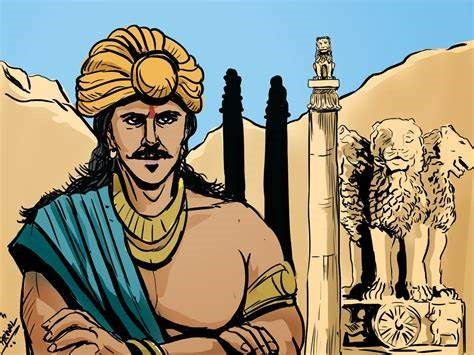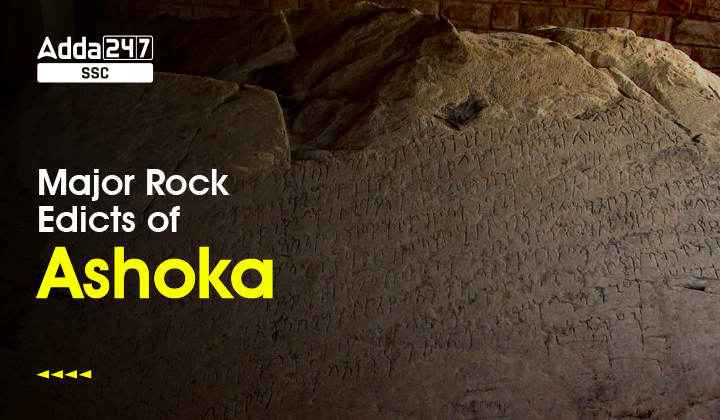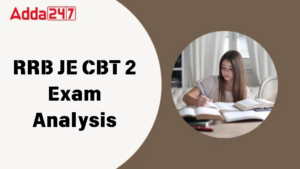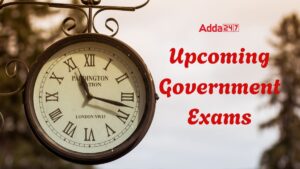Major Rock Edicts of Ashoka: The Edicts of Ashoka are a collection of more than 30 inscriptions on the pillars, as well as rocks and cave walls, accredited to Great Emperor Ashoka of the Mauryan Empire who ruled from 268 BCE to 232 BCE. These inscriptions were spread all over the regions of modern-day India, Nepal, Afghanistan, and Pakistan, and provide the 1st physical evidence of Buddhism. The edicts describe in detail Ashoka’s outlook about dhamma, a solemn endeavor to resolve some of the difficulties that a multifaceted society faced.
In this article titled as Major Rock Edicts of Ashoka, we are providing a table containing all the information about 14 Major Rock Edicts of King Ashoka, the Great Mauryan Emperor. The questions are often seen in the exams from this crucial topic of Ancient History (Arts & Culture).

Major Rock Edicts of Ashoka In Hindi
| MAJOR ROCK EDICTS OF ASHOKA | DETAILS |
| Major Rock Edict I | Forbids animal slaughter and bans festive gathering. |
| Major Rock Edict II | Care for man and animals. References of the Pandyas, Satyapuras and Keralaputras of South India. |
| Major Rock Edict III | Kindness to Brahmins. About Yuktas, Pradeshikas and Rajukas who would go every five years to different portions of his empire to spread Dhamma. |
| Major Rock Edict IV | Dhammaghosha (sound of Dhamma/righteousness) over Bherighosha (sound of war). |
| Major Rock Edict V | About Dhammamahamatras. Talks about handling slaves right. |
| Major Rock Edict VI | King’s aspiration to know about his people’s circumstances. About welfare measures. |
| Major Rock Edict VII | Tolerance for all religions. |
| Major Rock Edict VIII | Ashoka’s first visit to Bodh Gaya and the Bodhi tree (his first Dhamma Yatra). |
| Major Rock Edict IX | Condemns popular ceremonies. |
| Major Rock Edict X | Disapproves of the individual’s desire for fame and glory and stresses on Dhamma. |
| Major Rock Edict XI | Elaborates on Dhamma. |
| Major Rock Edict XII | Tolerance for all religions and sects. |
| Major Rock Edict XIII | Mentions conquest over Kalinga. Mentions Ashoka’s Dhamma victory over Greek Kings Antiochus of Syria (Amtiyoko), Ptolemy of Egypt (Turamaye), Magas of Cyrene (Maka), Antigonus of Macedon (Amtikini), Alexander of Epirus (Alikasudaro). Also mentions Pandyas, Cholas, etc. |
| Major Rock Edict XIV | Etching of inscriptions installed in various parts of the country. |

James Prinsep was the 1st person to decipher Major Rock Edicts of Ashoka and other minor edicts as well. These Ashoka’s inscriptions are the 1st physical proof of Buddhism. Major Rock Edicts of Ashoka were kept in public places and along trade paths so that maximum number of people would read them. More than religious sermons, Major Rock Edicts of Ashoka talk about the ethical obligations of the people, Ashoka’s desire to be a good and benevolent ruler, and about Ashoka’s effort towards this end.



 RRB JE CBT 2 Today Exam Analysis 22 Apri...
RRB JE CBT 2 Today Exam Analysis 22 Apri...
 SSC Calendar 2025 Under Review, Revised ...
SSC Calendar 2025 Under Review, Revised ...
 Upcoming Government Exams, Complete Govt...
Upcoming Government Exams, Complete Govt...


